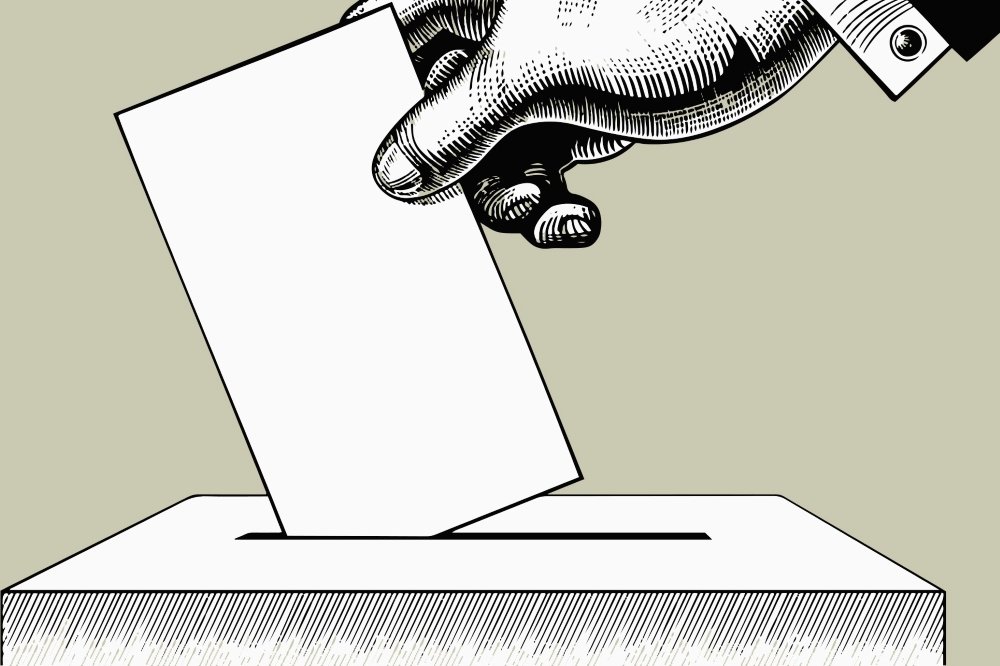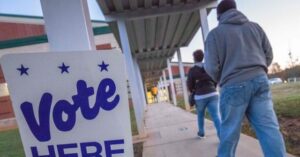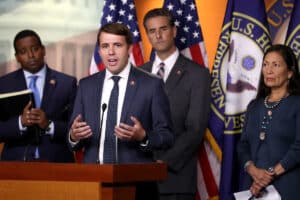Do federal law and the U.S. Constitution prohibit states from enacting commonsense voting requirements designed to protect the integrity of the electoral process, apply to everyone, and impose no significant burden? The Supreme Court tackled this question several weeks ago when it heard oral arguments in a case entitled Brnovich v. Democrat National Committee.
Democrats are challenging the legality of two measures used by Arizona to ensure a free and fair electoral process. The first, known as the “out of precinct policy” requires individuals who vote in-person to cast their respective ballots in their designated election location.
The second policy limits who may handle mail ballots to the individual voter, his or her close family member, mail carriers, and electoral officials, a policy that effectively bans groups who target vulnerable populations from engaging in ballot harvesting. Democrats allege these policies have a disparate impact on minorities and both place an undue burden on the right to vote. An en banc panel of the Ninth Circuit court of appeals agreed.
In opposing Arizona, Democrats ignore the fact that the vote-by-mail process contains opportunities for fraud not present in traditional, in-person voting. Ballots are sometimes delivered and left unsecured in mailboxes in apartment buildings, assisted living facilities, and other highly populated locations.
As such, opportunities to illicitly collect and complete these ballots abound. Furthermore, sophisticated political organizations train and deploy operatives to visit these communities and collect ballots, exerting a hefty influence on vulnerable voters in the process.
The issue here is whether states may enact even the most basic and obvious protections for a system fundamental and necessary for the preservation of our democracy. The alternative is that elected representatives deciding the time, place, and manner of elections (as delegated by the U.S. Constitution) will be replaced by unelected judges seizing more power and imposing their wills on the people.
If the Supreme Court doesn’t overturn the Ninth Circuit’s decision, any protection that states use to ensure the integrity of the voting process will be in doubt. A well-funded and sophisticated cadre of attorneys stands ready to initiate challenges to such traditional measures as requiring receipt of mail ballots by election day, requiring mail voters to pay for postage for ballots, and requiring witness verification for mail ballots.
Until a few years ago, both Republicans and Democrats agreed that voting by mail posed inherent risks, requiring state-level prohibitions on ballot harvesting. In 2005, a blue-ribbon committee headed by President Jimmy Carter and Secretary of State James Baker issued a report warning of the increased risk of fraud in mail voting.
It concluded when voting at home or in nursing homes, voters are susceptible to pressure and intimidation. It also found third-party organizations can operate illicit “vote-buying schemes” that are “far more difficult to detect when citizens vote by mail.”
After extensive hearings and due deliberation, the Arizona legislature passed — and the governor signed — its law limiting who could handle mail ballots. The law prevents fraud and ensures confidence in the legitimacy of the election.
Despite denials from the left, ballot trafficking occurs. In 2018, a congressional committee found “ballot brokers” in California identified and targeted groups hoping to exploit the electoral process. In another well-known case, ballot trafficking adversely affected the outcome of a congressional race in North Carolina.
During the Supreme Court’s oral arguments, several justices sought to identify at what point, if any, facially neutral voter protections violate federal law and the Constitution. They wrestled with questions about how much courts should consider the intent behind a law and whether, as opponents to reasonable election integrity argue, a single legislator’s racially charged language during the bill’s deliberation can be imputed to the entire legislative body. These questions will need to be answered before the court can come to any resolution.
How the Supreme Court resolves Brnovich will transform the power states have under the Constitution’s Art. I, Sec. 2 to supervise elections. The stakes are high. This case, coupled with efforts in the U.S. Congress to nationalize election laws, threatens to permanently undermine state efforts to ensure election integrity.
The House recently passed H.R. 1, a bill that removes the authority of the states to regulate elections and federalizes the entire process. In the coming weeks, look for extensive debate in the Senate about Washington’s role in the electoral process with extensive pressure from the White House to amplify the role of the federal government.
The left has a goal: elections with no protections. Worryingly, a definitive striking down of Arizona’s ballot harvesting provision would clear the way for a national takeover through H.R. 1.
A decision on this case is expected later this spring or early this summer. In the meantime, while state legislatures are working to enact new voting protections to restore confidence in the electoral system, all of these measures are in jeopardy should the Supreme Court fail to overturn the Ninth Circuit’s decision.



